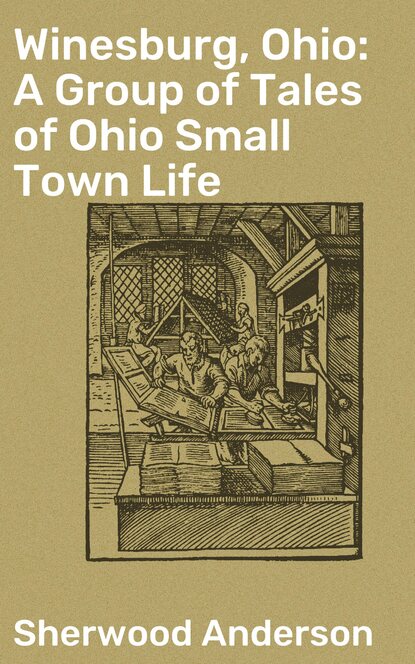tion>
Sherwood Anderson
Winesburg, Ohio: A Group of Tales of Ohio Small Town Life
Published by Good Press, 2019
EAN 4057664182234
Table of Contents
THE TALES AND THE PERSONS
THE BOOK OF THE GROTESQUE
HANDS, concerning Wing Biddlebaum
PAPER PILLS, concerning Doctor Reefy
MOTHER, concerning Elizabeth Willard
THE PHILOSOPHER, concerning Doctor Parcival
NOBODY KNOWS, concerning Louise Trunnion
GODLINESS, a Tale in Four Parts
I, concerning Jesse Bentley
II, also concerning Jesse Bentley
III Surrender, concerning Louise Bentley
IV Terror, concerning David Hardy
A MAN OF IDEAS, concerning Joe Welling
ADVENTURE, concerning Alice Hindman
RESPECTABILITY, concerning Wash Williams
THE THINKER, concerning Seth Richmond
TANDY, concerning Tandy Hard
THE STRENGTH OF GOD, concerning the
Reverend Curtis Hartman
THE TEACHER, concerning Kate Swift
LONELINESS, concerning Enoch Robinson
AN AWAKENING, concerning Belle Carpenter
"QUEER," concerning Elmer Cowley
THE UNTOLD LIE, concerning Ray Pearson
DRINK, concerning Tom Foster
DEATH, concerning Doctor Reefy and Elizabeth Willard
SOPHISTICATION, concerning Helen White
DEPARTURE, concerning George Willard
INTRODUCTION
by Irving Howe
I must have been no more than fifteen or sixteen years old when I first chanced upon Winesburg, Ohio. Gripped by these stories and sketches of Sherwood Anderson's small-town "grotesques," I felt that he was opening for me new depths of experience, touching upon half-buried truths which nothing in my young life had prepared me for. A New York City boy who never saw the crops grow or spent time in the small towns that lay sprinkled across America, I found myself overwhelmed by the scenes of wasted life, wasted love—was this the "real" America?—that Anderson sketched in Winesburg. In those days only one other book seemed to offer so powerful a revelation, and that was Thomas Hardy's Jude the Obscure.
Several years later, as I was about to go overseas as a soldier, I spent my last week-end pass on a somewhat quixotic journey to Clyde, Ohio, the town upon which Winesburg was partly modeled. Clyde looked, I suppose, not very different from most other American towns, and the few of its residents I tried to engage in talk about Anderson seemed quite uninterested. This indifference would not have surprised him; it certainly should not surprise anyone who reads his book.
Once freed from the army, I started to write literary criticism, and in 1951 I published a critical biography of Anderson. It came shortly after Lionel Trilling's influential essay attacking Anderson, an attack from which Anderson's reputation would never quite recover. Trilling charged Anderson with indulging a vaporous sentimentalism, a kind of vague emotional meandering in stories that lacked social or spiritual solidity. There was a certain cogency in Trilling's attack, at least with regard to Anderson's inferior work, most of which he wrote after Winesburg, Ohio. In my book I tried, somewhat awkwardly, to bring together the kinds of judgment Trilling had made with my still keen affection for the best of Anderson's writings. By then, I had read writers more complex, perhaps more distinguished than Anderson, but his muted stories kept a firm place in my memories, and the book I wrote might be seen as a gesture of thanks for the light—a glow of darkness, you might say—that he had brought to me.
Decades passed. I no longer read Anderson, perhaps fearing I might have to surrender an admiration of youth. (There are some writers one should never return to.) But now, in
